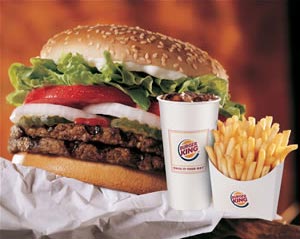The Shortcomings of Dieting
Thinking about starting a new diet to shed those extra pounds? Think again. While the allure of quick fixes and rapid results is tempting, long-term weight control through dieting is nearly impossible. Why? Most diets offer short-term solutions that often lead to disappointing outcomes. The initial weight loss seen on the scale is typically due to the loss of water and muscle mass, not body fat.
One of the primary reasons diets fail is their impact on your body's metabolism. Diets send the body into starvation mode—a survival mechanism from ancient times. By cutting back on calorie intake, your body lowers its metabolic rate, making it harder to burn fat. Simultaneously, hunger signals intensify, driving cravings for calorie-dense foods high in fats and sugars—the very foods you're trying to avoid. This vicious cycle often leads to weight regain and even additional fat accumulation.
The Downside of Repeated Dieting
Dieting doesn’t just fail—it often backfires. Research indicates that repeated dieting makes it increasingly difficult to lose weight and easier to regain it. When you return to regular eating habits after a diet, the lower metabolic rate caused by the diet means even your pre-diet caloric intake may now be excessive. This results in the regaining of fat stores and potentially even more weight than you started with.
Diets also have psychological effects, leaving people trapped in cycles of guilt and frustration. Moving from one failed diet to the next can erode confidence and foster an unhealthy relationship with food, where meals become a source of anxiety rather than nourishment.
The Case for Sustainable Weight Loss
Instead of restrictive diets, focus on creating a sustainable lifestyle that promotes gradual, long-term weight loss. A realistic goal is losing one to two pounds per week. Rapid weight loss usually reflects the loss of glycogen and water rather than fat, which is why it’s often quickly regained.
Adopting a balanced approach that includes a variety of whole foods, regular physical activity, and realistic expectations is key to success. Ask yourself: Can I stick to this plan for life? If the answer is no, it’s time to rethink your strategy. Sustainable weight loss requires gradual changes that you can maintain permanently.
Building a Balanced Diet
Creating a healthy eating plan is less about restriction and more about making informed choices. Incorporate nutrient-dense foods like fruits, vegetables, whole grains, lean proteins, and low-fat dairy. Reduce your intake of calorie-dense, processed foods such as chips, sugary snacks, and fried items. Learning to read food labels and making small substitutions—like using skim milk instead of cream—can significantly lower your calorie and fat intake over time.
It’s important to include all food groups in moderation. Carbohydrates, often demonized by fad diets, are essential for energy and overall health. Instead of cutting them out, focus on complex carbs like oats, quinoa, and sweet potatoes, which provide sustained energy and fiber.
The Role of Exercise
Exercise is a critical component of any weight loss plan. A combination of strength training and cardiovascular activity not only helps burn calories but also preserves lean muscle mass, which boosts your metabolic rate. Begin with small, manageable changes, such as adding a weekly workout session or choosing the stairs over the elevator. Over time, these habits will become second nature and contribute to consistent weight loss.
Physical activity also improves mental health by reducing stress and enhancing mood, making it easier to stick to your goals. Find activities you enjoy, whether it’s dancing, swimming, or hiking, to make exercise a rewarding part of your routine.
Breaking Free from Diet Culture
Diets often make food the enemy, turning meals into sources of guilt or fear. Instead, shift your perspective to view food as fuel and a source of enjoyment. Allow yourself occasional indulgences without guilt—balance is more effective than restriction.
Educate yourself about nutrition and develop an understanding of what your body needs to thrive. Knowledge empowers you to make better choices and builds confidence in your ability to manage your weight without relying on gimmicks or extreme measures.
A Smarter Path to Weight Loss
While diets may promise quick results, they rarely deliver lasting success. Sustainable weight loss comes from embracing a lifestyle that includes balanced nutrition, enjoyable physical activity, and a healthy mindset. Ditch the short-term fixes and focus on gradual changes that you can maintain for life. Your body—and your confidence—will thank you.













